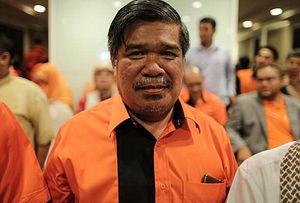Earlier this week, Malaysia’s defense ministry again suggested that the country was looking at options with several countries where palm oil would be part of a barter system to buy military equipment. Though talk of such activity is far from new for Malaysia, it has nonetheless once again highlighted an issue that could have broader implications for the country’s defense policy.
As I have observed before in these pages, the idea of countertrade – a catchall term for an exchange of goods through means other than currency purchase – is not new for Malaysia or unique to it. Like some other developing countries, it has been considered as an option as the country seeks to balance domestic and foreign policy considerations in its defense policy.
But the more specific idea of using palm oil as part of a barter system to buy military equipment has recently received attention under the Pakatan Harapan (PH) government since its shock election victory in May 2018. Malaysia is the world’s second largest palm oil producer after Indonesia, with the product comprising about 5 percent of its entire GDP. With that in mind, and given the budgetary constraints the country faces in the defense realm, Malaysia’s Defense Minister Mohamad Sabu, popularly known as Mat Sabu, has previously suggested that it could move to a barter system where it uses national commodities including palm oil instead of money to pay for defense equipment. The idea has also come as the PH government manages the challenge of palm oil restrictions emerging from the European Union.
This week, the idea of Malaysia using palm oil to buy military equipment was in the headlines again with comments from a media interview by Mohamad. In the interview, Mohamad said that discussions were already ongoing with six countries – China, India, Iran, Pakistan, Russia, and Turkey – and that Malaysia remained open to pursuing collaboration along these lines.
“If they are prepared to accept a palm barter trade, we are very willing to go in that direction,” Mohamad told Reuters in an interview. “We have a lot of palm oil.”
Mohamad’s remarks come as no surprise given his previous comments on this issue. Indeed, he has made references before to a “barter system” that could be put in place in some cases, and also mentioned a degree of receptivity from some countries including China, Pakistan, and Russia. More broadly, the notion of using other means of purchasing defense equipment also speaks to actual constraints for Malaysia’s defense policy under the PH government, including a 10 percent cut to defense spending in its first budget issued last year.
Yet, at the same time, it is difficult to evaluate the prospects for this idea given that so many specifics still remain unclear. While Mohamad did provide a longer list of partners than some of the previous times when he has talked about this idea, he also did not mention whether there were any deals that were moving forward, or other details such as how much palm oil was actually being considered for such deals.
More broadly, while Mohamad may be right about the benefits of palm oil-related defense countertrade, he did not mention the costs and risks of pursuing such an option. Buying cheaper or lower quality equipment could actually prove more costly in the long run, while widening the array of defense partners could impact interoperability and detract from strategic priorities such as those expected to be outlined in Malaysia’s upcoming defense white paper. Those tradeoffs will need to be carefully weighed if Malaysian policymakers are to seriously move ahead with this course of action, rather than just suggesting it as a potential option.
































